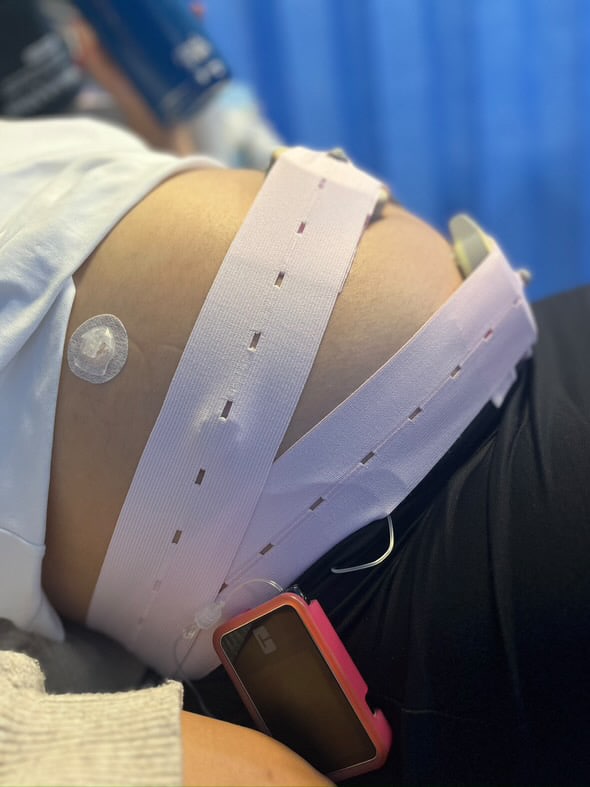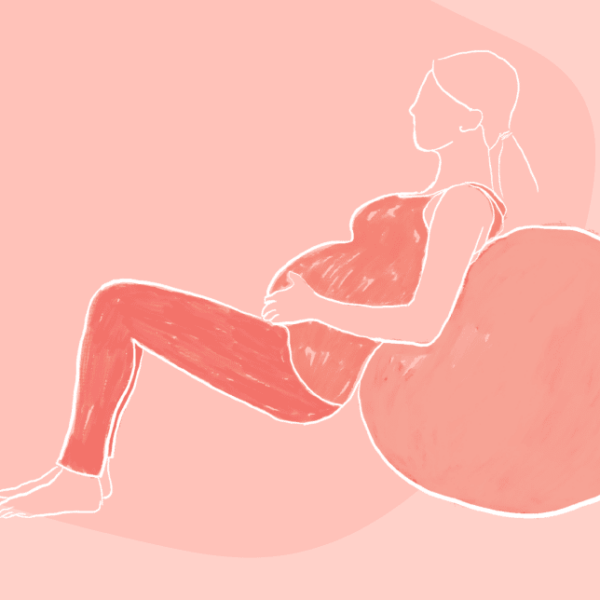Pregnancy Hyperemisis Gravidarum (HG)
Hyperemisis Gravidarum (HG)

Hyperemisis Gravidarum (HG) can be a confronting diagnosis and for those currently suffering, the months to come may feel like a daunting unknown.
Aside from the horrendous symptoms, no one can really explain why it happens which can definitely add to the frustration of the experience although it’s important to know that it doesn’t discriminate; it affects women of all ages and nationalities.
Despite your overwhelm, remember that you aren’t alone; there is a whole community of women who know exactly what you’re going through. I strongly recommend you head to HG Australia for resources and support for both yourself and your partner – hyperemesisaustralia.org.au
If you’re unsure if you’ve got HG but you’re currently navigating the challenge of Nausea and Vomiting in Pregnancy (NVP), it’s best that you make an appointment with your GP as soon as possible (HG is regarded as the most severe form of NVP). In the meantime, the following symptoms are typical of HG:
- nausea
- vomiting
- dry retching
- hypersalivation (excess saliva)
HG is often defined by a vicious cycle of these profound symptoms with little to no reprieve, hence sufferers slip into chronic dehydration and malnutrition which subsequently leads to:
- headache
- fatigue
- constipation
- bleeding gums or nose
- dizziness
- low blood pressure
- heart palpitations
Yes, it’s an incredibly debilitating disease that is considered rare, although anecdotally I feel like it affects significantly more pregnancies than the 1% reported. There have been many women featured on the podcast who have suffered from it, you can listen to their stories HERE.
If you find you’re in a perpetual cycle of vomiting and nausea and you can’t keep fluids down, it’s best that you present to your local Emergency Department where you’ll most likely be admitted for IV fluids. Once discharged, it’s best to connect with your GP or OB (if you’re under the care of a midwife or midwifery group practice, they will most likely refer you onto your GP). You can expect a discussion around medication (please don’t attach any guilt to your need for medication…if it eases your symptoms, it’s a good option for you!), your mental health and the steps you can take to support yourself.
The severe physical symptoms of HG can lead to feelings of isolation and identity crisis (losing your sense of self that’s connected to career, socialising and relationships). Consequently, HG sufferers are 50% more likely to develop perinatal depression and/or anxiety. Don’t hesitate to seek support from a perinatal psychologist if you feel that you need professional help; your care provider or GP will refer you.
It’s important to note that there are still doctors and specialists who don’t take HG seriously and if that’s your experience, find a new doctor. You are the only person who truly knows how you feel so don’t let anyone (professional or not) dismiss your symptoms or your feelings. If you connect with HG Australia or Facebook forums for HG sufferers, you’ll find an online support team who understands your pain and experience and will say all the right things to help you navigate the following months. Validation of you and your experience is absolutely crucial for your mental well-being.
Tips for HG:
- wait at least 30 minutes after vomiting to brush your teeth as the acid can wear away your enamel and it’s made worse if you brush straight away
- use a child’s toothbrush if you’re prone to gagging
- take small sips of water regularly (a straw can help)
- rest and nap whenever you can
- eat small meals, slowly
- open a window and step outside if you can – fresh air is important
- accept offers of help
- if you’re feeling useless, remind yourself that you’re growing new life – a whole new human!
- ice and ice blocks can be a good way of staying hydrated
Categories
Related Products
-
The Birth Class
108 reviews$249.00The empowering online childbirth education program that will help you confidently prepare for birth.
Get your copy of our Perineal Massage Guide in your inbox
Keep Reading
We think you might enjoy these articles

The Emergency C-Section Checklist You’ll Be Thankful You Had

Pre-existing Diabetes and Pregnancy: What You Need to Know

Harnessing the Power of Acupressure: A Natural Approach to Preparing for Birth

Thoughtful Christmas Gifts for your Pregnant Friend.

What is Pre-eclampsia?

Non-invasive Prenatal Testing (NIPT)
@AustralianBirthStories
Follow along with us
@AustralianBirthStories
Follow along with us
@AustralianBirthStories
Follow along with us
@AustralianBirthStories
Follow along with us
@AustralianBirthStories
Follow along with us
@AustralianBirthStories
Follow along with us
@AustralianBirthStories
Follow along with us
@AustralianBirthStories
Follow along with us
@AustralianBirthStories
Follow along with us
@AustralianBirthStories
Follow along with us
@AustralianBirthStories
Follow along with us
@AustralianBirthStories
Follow along with us


